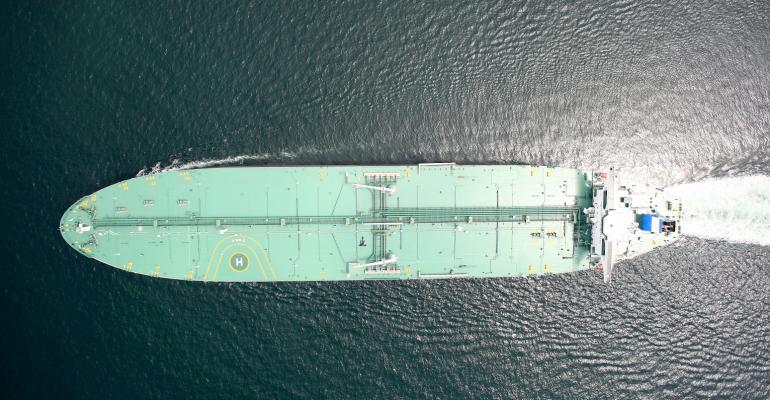Had it been completed, the combined entity could have had a squarely “mid- cap” market capitalization on the order of $5 - $6 bn, rivaling that of some of the liner-shipping “names” and enabling consideration by a wider swathe of institutional investors than most bulk shipping companies can generate.
The all-stock merger proposal was announced by Frontline on 11 July last year and six-month battle ensued with the Saverys family, a major shareholder in Euronav, that strongly opposed the combination. Frontline said in a brief statement that it had terminated the combination agreement it had entered into with
The failure of the deal comes at a time when tankers are enjoying some of their best trading markets in years reaping the benefits of sanctions against Russia reshaping oil trades.
Lars H. Barstad, CEO of Frontline said: “We regret that we could not complete the merger as envisaged in July 2022, as that would have created the by far largest publicly listed tanker company. At the same time, both companies have independently very large fleets of crude oil and product tankers, and are already enjoying economies of scale as evidenced by our respective recent financial reports.
Listen to an episode of the Seatrade Maritime Podcast on the outlook for the tanker market in 2023
Evercore ISI analyst Jon Chappell was philosophical, saying that, in shipping, egos rather than business sense often win out: “The King won’t get his crown jewel, but tanker investors will still get cyclical upside to an upturn, complete with dividends from both entities. It’s just too bad that ego kept the industry from offering investors a true bellwether. But that’s shipping for you…”
He wondered whimsically in a note to investors whether Euronav might “become an incubator for hydrogen ambitions,” referring obliquely to CMB.Tech, a company incubated by the Saverys family, which is seeking to build out a network of hydrogen fueling stations serving vessel operators. The family has also been looking at vessels to serve the burgeoning offshore wind sector (where “green hydrogen”) can be generated by virtue of electricity generated by wind turbines.
In his write-up to clients, the veteran analyst looked for something of a win-win here for investors, saying: “As stand-alone entities, with large fleets exposed to a tanker market that is likely to remain robust for the foreseeable future, both are set to generate strong cash flow, generously return capital to shareholders, and move from current NAV discounts to premiums as dividends accelerate. Immediate Frontline upside could get the stock to a NAV premium tomorrow, and we are buyers of any Euronav weakness on the failed deal.” In overnight trading, Euronav was seeing a dip in prices from its Monday close at $15.94 per share, while other large tanker shares were seeing upticks.
In the Twitter-sphere, there were a variety of views. Investor and fund manager Joakim Hannisdahl noted that he had bailed out of Euronav shares recently, partly because of a healthy valuation, and partly because he worried about the deal falling apart. He pointed to the benefits of diversification, saying: “As a shipping investor, I prefer several large companies to invest in, versus one behemoth”. Others were wondering aloud on what names might come next, with International Seaways and DHT Holdings mentioned.
Fredriksen built up a significant portion of his shipping empire through aggressive takeover bids, however, the moves are not always successful as the failure of the Euronav deal and an unsolicited bid for DHT Holdings in 2017 prove.
Copyright © 2024. All rights reserved. Seatrade, a trading name of Informa Markets (UK) Limited.
Add Seatrade Maritime News to your Google News feed.  |

